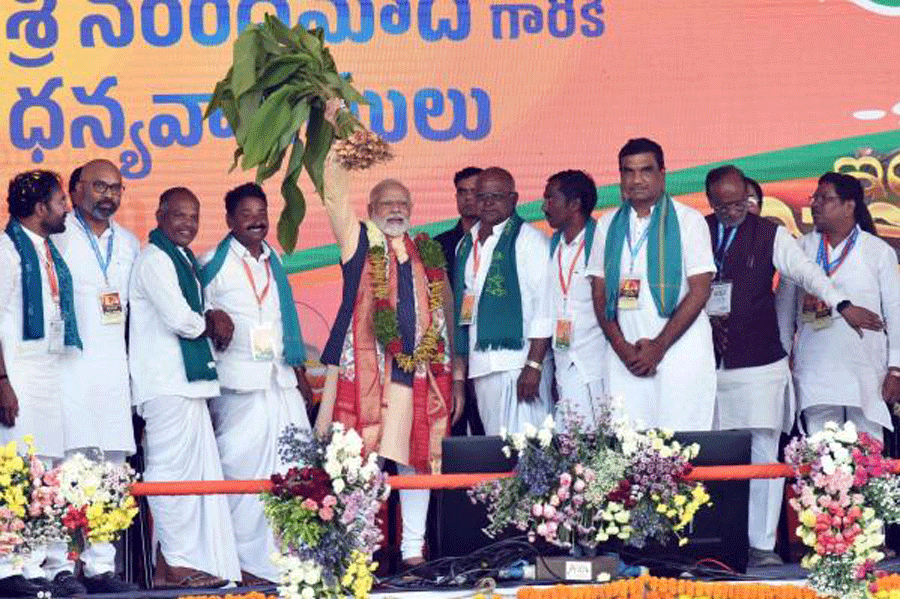Ahead of the Assembly elections in Telangana, the Union cabinet has approved a proposal to set up a central university in the state, a promise made under the Andhra Pradesh Reorganisation Act, 2014.
The cabinet, chaired by Prime Minister Narendra Modi, on Wednesday approved the Central Universities (Amendment) Bill, 2023, for introduction in Parliament. The Sammakka Sarakka Central Tribal University will be set up in Mulugu district of Telangana through the proposed amendment.
K.R. Suresh Reddy, Rajya Sabha member from Telangana’s ruling Bharat Rashtra Samiti, said the timing of the move – nine years after the obligation was made — suggested that the government was doing it for political gain.
A media release from the Centre’s publicity arm, the Press Information Bureau, said the government would provide Rs 889.07 crore towards the new institution.
Among other things, the new university will provide “instructional and research facilities in tribal art, culture and traditional knowledge system for the benefit of the tribal population in the state”, it said.
The Centre has already set up two other universities with a tribal focus. Under UPA rule, the Indira Gandhi National Tribal University (IGNTU) was set up in Amarkantak, Madhya Pradesh, in 2008.
In 2019, the NDA government got a bill passed to set up a tribal university in Andhra Pradesh. The Central Tribal University of Andhra Pradesh, Vizianagaram, offers undergraduate and master’s courses in the sciences and humanities.
Reddy said the commitments in the Reorganisation Act had been made to address development deficits in Telangana and Andhra Pradesh after the 2014 bifurcation.
“The obligation is being fulfilled after almost 10 years since the law was passed. This shows the negligent attitude of the government towards Telangana,” he said.
“The BJP is trying to make inroads into Telangana for political benefit. That is why this decision has been taken at the time of the Assembly elections.”
T.V. Katimani, vice-chancellor of the Central Tribal University of Andhra Pradesh and former VC of the IGNTU, said a university with a tribal focus had a distinct responsibility to tribal communities apart from offering academic programmes.
“A tribal university has to engage with the tribal people, address their educational, health and developmental issues by undertaking research and social activities,” Katimani said.
He cited the high dropout rate among tribal schoolchildren and said the university can engage with people and find out the reasons, whether linguistic, cultural or economic.
Further, it can research the traditional knowledge that tribal people possess in various fields and bring it to the world’s attention, Katimani said.











